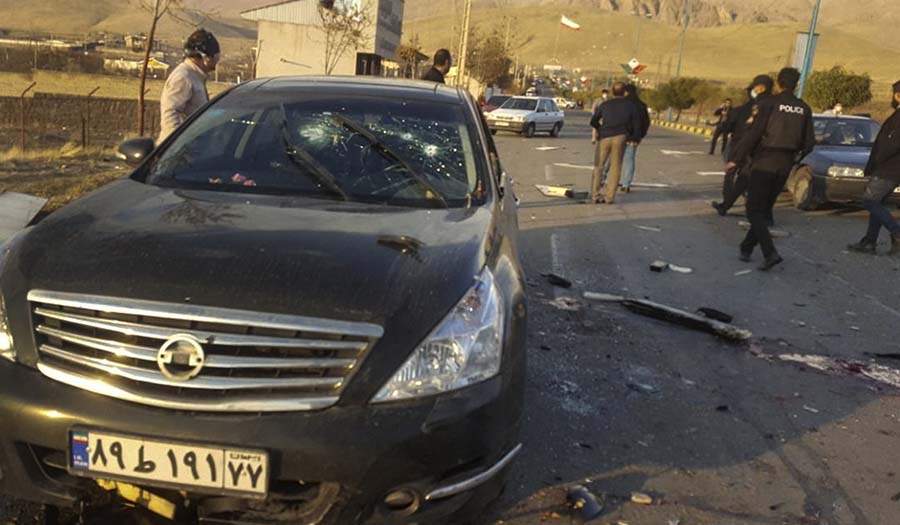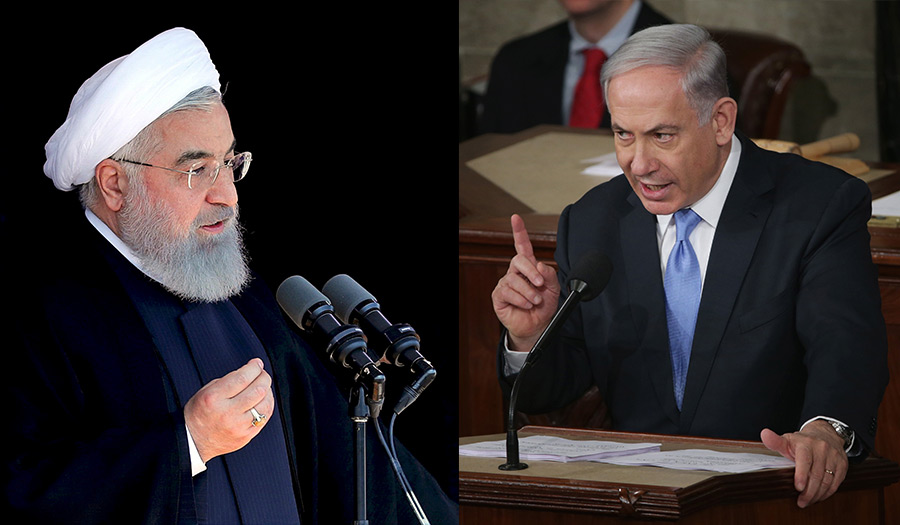 Fars News Agency via AP
Fars News Agency via AP
World News Desk
Learn the why behind the headlines.
Subscribe to the Real Truth for FREE news and analysis.
Subscribe NowTEHRAN, Iran (AP) – Iran’s supreme leader on Saturday
demanded the “definitive punishment” of those behind the killing of a scientist
who led Tehran’s disbanded military nuclear program, as the Islamic Republic
blamed Israel for a slaying that has raised fears of reignited tensions across
the Middle East.
Following the supreme leader’s comments, an opinion piece
published Sunday by a hardline Iranian newspaper urged Iran to attack the
Israeli port city of Haifa if Israel carried out the killing of Mohsen
Fakhrizadeh, the scientist who founded Iran’s military nuclear program in the
early 2000s.
Though the hardline Kayhan newspaper has long argued
for aggressive retaliation for operations targeting Iran, Sunday’s opinion
piece went further, suggesting any assault be carried out in a way that
destroys facilities and “also causes heavy human casualties.”
Israel, suspected of killing Iranian nuclear scientists over
the past decade, has not commented on the brazen slaying of Fakhrizadeh. A
military-style ambush Friday on the outskirts of Tehran reportedly saw a truck
bomb explode and gunmen open fire on the scientist, killing him and a
bodyguard.
U.S. intelligence agencies and U.N. nuclear inspectors have
said the organized military nuclear program that Fakhrizadeh oversaw disbanded
in 2003. Israel insists Iran still maintains the ambition of developing nuclear
weapons.
Kayhan published the piece written by Iranian analyst
Sadollah Zarei, who argued Iran’s previous responses to suspected Israeli
airstrikes that killed Revolutionary Guard forces in Syria did not go far
enough to deter Israel. He said an assault on Haifa also needed to be greater
than Iran’s ballistic missile attack against American troops in Iraq following
the U.S. drone strike in Baghdad that killed a top Iranian general in January.
Striking the Israeli city of Haifa and killing a large
number of people “will definitely lead to deterrence, because the United States
and the Israeli regime and its agents are by no means ready to take part in a
war and a military confrontation,” Mr. Zarei wrote.
While Kayhan is a small circulation newspaper, its
editor-in-chief Hossein Shariatmadari was appointed by Supreme Leader Ayatollah
Ali Khamenei and has been described as an adviser to him in the past.
Mr. Khamenei called Fakhrizadeh “the country’s prominent and
distinguished nuclear and defensive scientist.” Mr. Khamenei, who has the final
say on all matters of state, said Iran’s first priority after the killing was
the “definitive punishment of the perpetrators and those who ordered it.” He
did not elaborate.
Haifa, on the Mediterranean Sea, has been threatened in the
past by both Iran and one of its proxies, the Lebanese militant group
Hezbollah. Haifa, Israel’s third-largest city, is home to a major port and
power plant.
Such a strike likely would draw an immediate Israeli
retaliation and spark a wider conflict across the Mideast. While Iran has never
directly targeted an Israeli city militarily, it has conducted attacks
targeting Israeli interests abroad in the past over the killing of its
scientists, like in the case of the three Iranians recently freed in Thailand
in exchange for a detained British-Australian academic.
- Real Truth Magazine Articles
- MIDDLE EAST
 Iran and Israel’s Mideast Showdown
Iran and Israel’s Mideast Showdown
Other Related Items:
More on Related Topics:
- Anxious Travelers Scramble as Iran War Strands Tens of Thousands Across the Middle East
- War in the Mideast Widens as President Trump Says Strikes on Iran Could Last Several Weeks
- Iran Commemorates 1979 Revolution as Nation Is Squeezed by Anger Over Crackdown and Tensions with U.S.
- The Gaza Ceasefire Began Months Ago. Why Does Fighting Persist?


